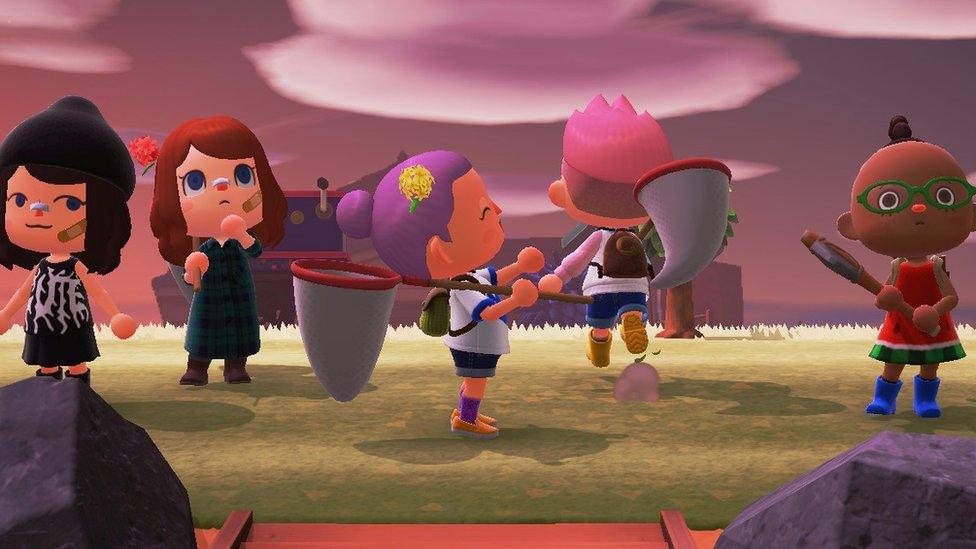Covid in Scotland: How gaming helps people connect during lockdown
- Published
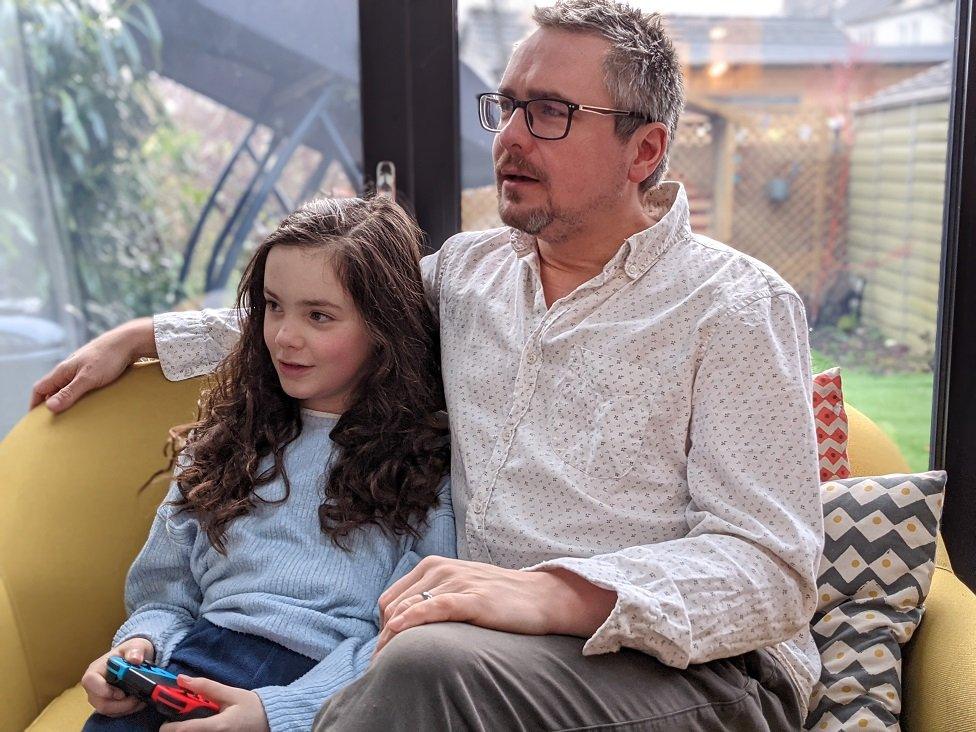
Eva Barr and her dad, Matthew, enjoy playing video games together
Unable to meet friends face-to-face during the lockdown, some people are turning to computer games as a way to stay in touch.
The gaming industry has seen a boost in sales during the pandemic, so what's the appeal of the virtual world? BBC Scotland has been asking gamers how connecting online has helped them.

Ten-year-old Eva Barr has enjoyed playing computer games for as long as she can remember, but since the pandemic began gaming has become an even bigger part of her life.
Her favourite game is Nintendo's Animal Crossing and Pikmin 3 because she can talk to her friends and cousins online as they play.
"First of all we can be on a call," she says. "You can have a little speech bubble above your head and you can type in what you want to say. Even when you're not on the same island, if they're online, you can say 'Good morning,' or something.
"It feels like you're outside and you're doing something, and you can talk to people without having to wear a mask," she says.
Eva thinks she probably got the gaming bug from her dad, Dr Matthew Barr.
A lecturer at Glasgow University with a research interest in video games, he has been looking at how gaming has affected players' wellbeing during the pandemic.
"We discovered that socialisation was one of the big things," he says. "That was perhaps one of the most prevalent things to emerge from the work, that games offered folk a way of socialising, of staying in touch."
"It's a very common misconception that people will think that games are antisocial. There's that sort of image of the lone-boy in the basement, it's always a boy, playing away by himself. But in fact, one of the big draws, one of the big advantages of playing games, is the online sociability."
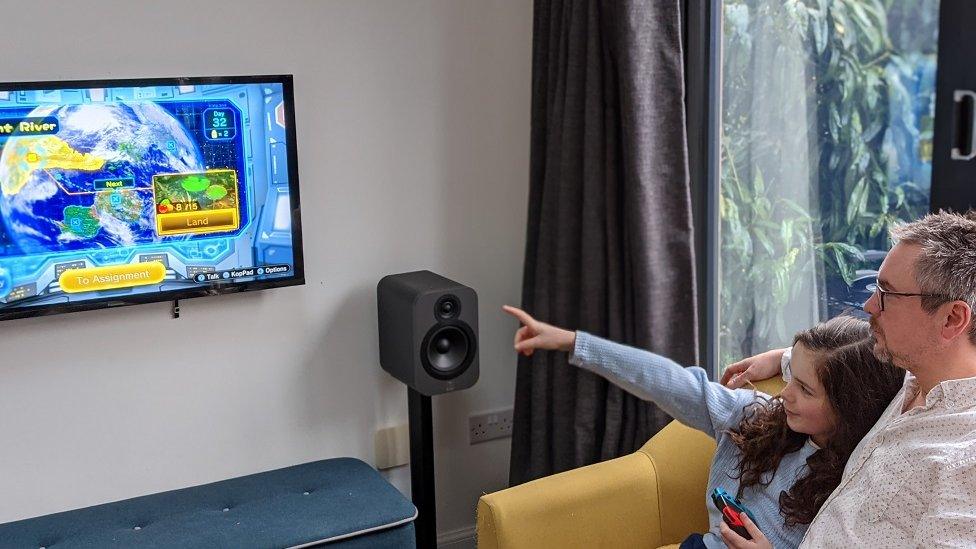
Dr Barr says gaming has offered people a way of socialising during the pandemic
Some parents may worry about allowing their children too much screen-time and who they might be talking to online. Dr Barr said the key is to be aware of what they are playing and to get involved too.
He said: "There's also the sociability that occurs in the home. You know, we all play games together around the TV. That gives us something to do when we can't necessarily get out and do the things we would normally do."
Stewart Borland, 15, says gaming helped him to adjust to life back in Glasgow, after he and his family moved from the Middle East just before the pandemic broke out in the UK.
"Basically, any free time I've got I'll normally spend gaming," he says. " I suppose someone would watch TV, go out or something, I'd rather spend that time playing with my friends. And it's really good because since we're in different countries we can still do that stuff together.
"I feel since I've had a constant connection with my friends, it really felt like nothing much has changed even though I was in a completely different country and all the circumstances were different, I still almost had a like safe place where I could go every day, talk to them, just jump into a game and just enjoy ourselves.
"And then you've got another element of virtual reality and that really allows you to almost meet with them. It feels like face-to-face and I feel that's a really good way if you're suffering from, kind of like, loneliness. It really feels like you're meeting the person and you can do real things together."
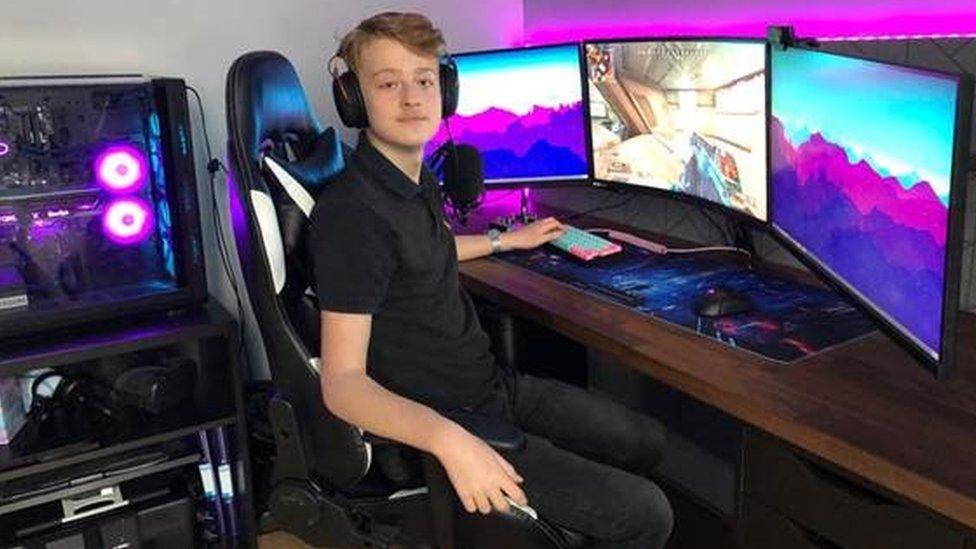
Stewart Borland says gaming has helped him adjust to life in Glasgow after moving from the Middle East
Kenny Anderson says online gaming has been "an absolute godsend" for him during the pandemic, as he had to give up his weekly board game nights with friends.
"The type of games that I'd play with my friends when they came round would be the traditional role-playing games, Dungeons and Dragons being a name that many people would be familiar with, but also board games.
"Ironically, one of the large ones we were playing just before everything stopped was a game called Pandemic, about a group of people from the World Health Organisation trying to stop diseases that are ravaging the world.
"Instead a bunch of us decided to start playing World of Warcraft again, something we'd played years earlier - almost as a 'staycation' in Azeroth which is where the game is set."
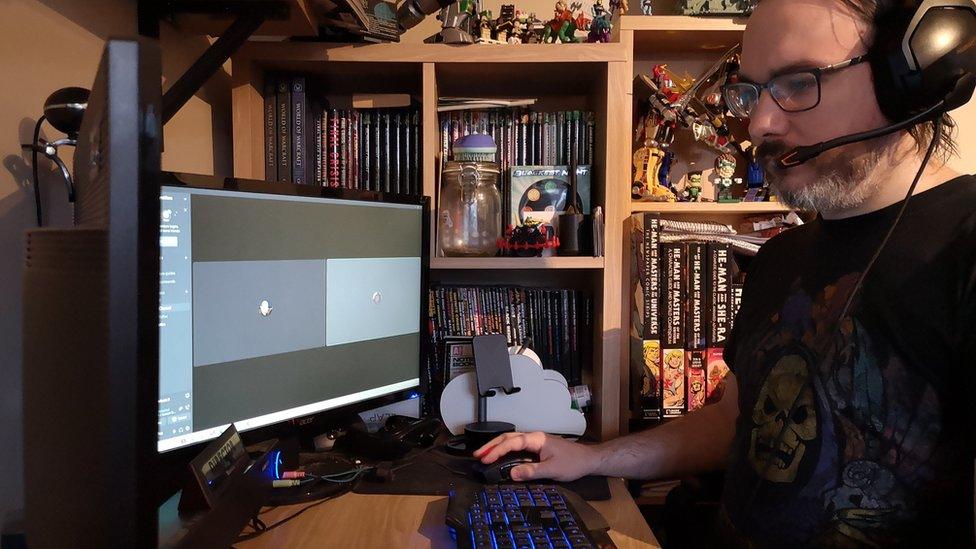
Gaming has been an "absolute godsend" for Kenny Anderson during the pandemic
Kenny says gaming has allowed him and his friends to look out for each other during the pandemic.
"The great thing about having the games as a kind of 'thing that you do' and having the voice chats is you're able to tell when people aren't doing as well. And it just gives you that ability to go and have a chat and, you know, check up on them.
"There's only so much you can do when you're remote, but the games just help to you know - you're there to have fun so it can help to act as a kind of pressure release valve for the trials and tribulations of the past week."


- Published3 June 2020
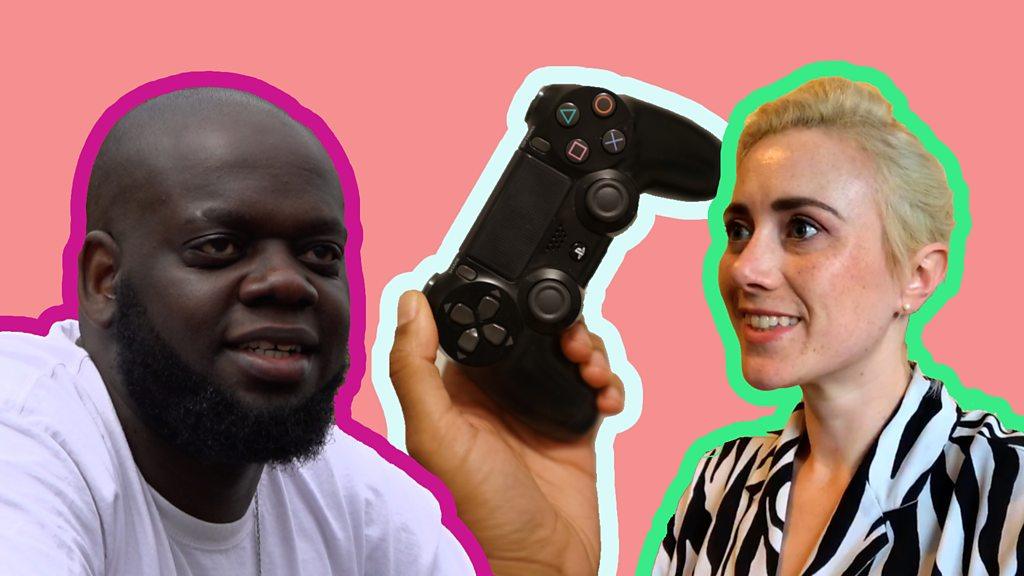
- Published17 May 2020
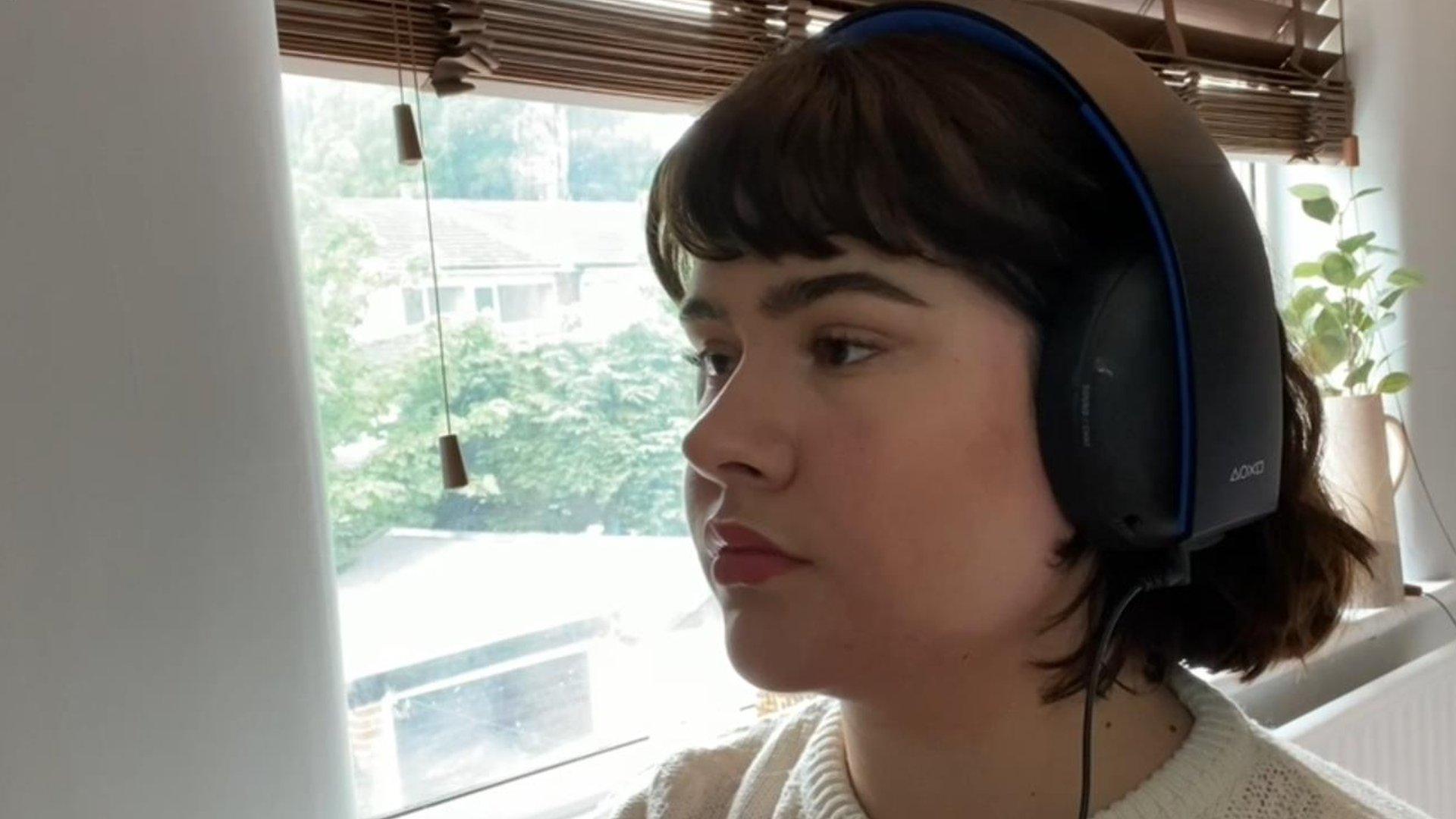
- Published6 May 2020
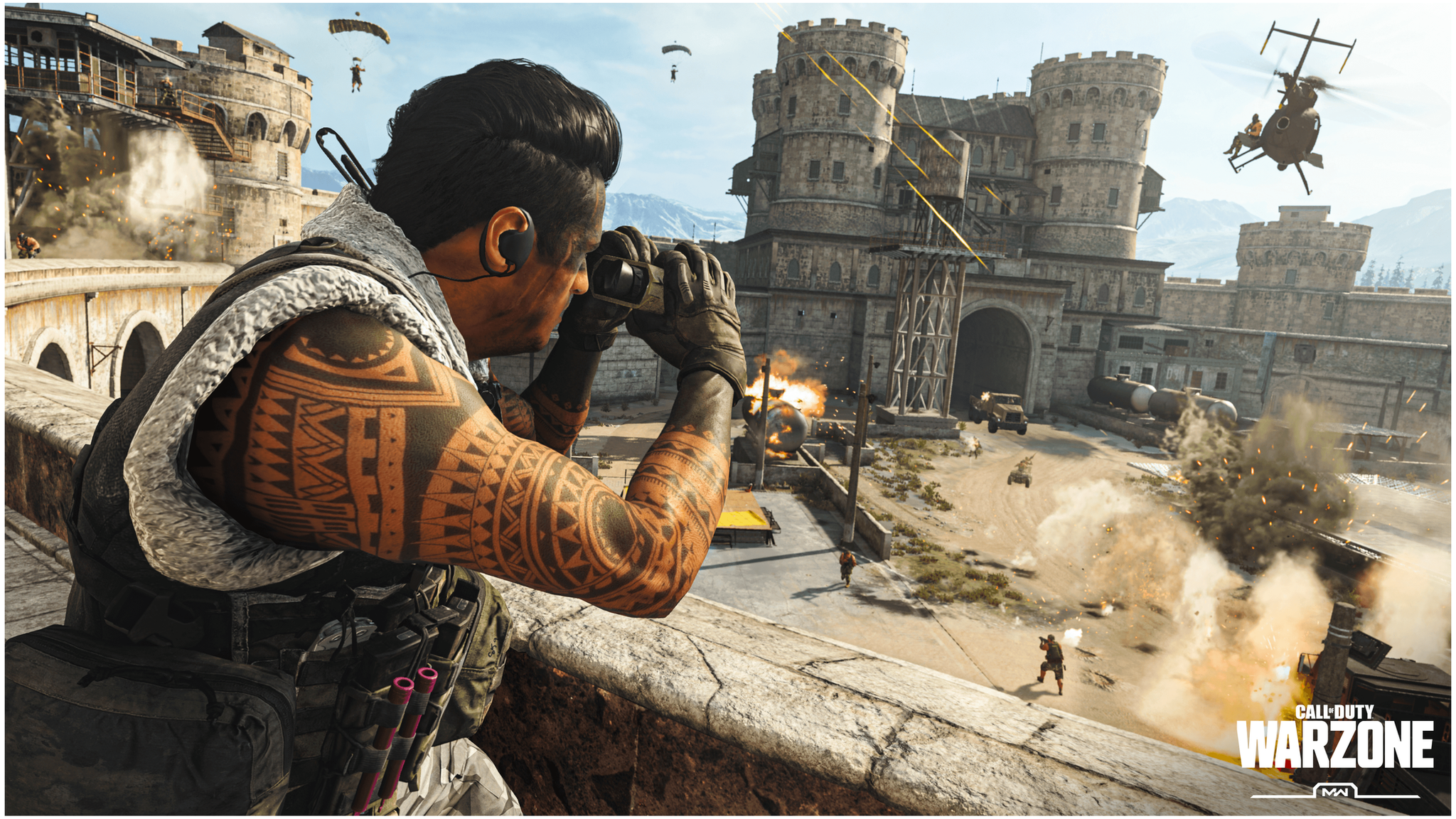
- Published14 April 2020
